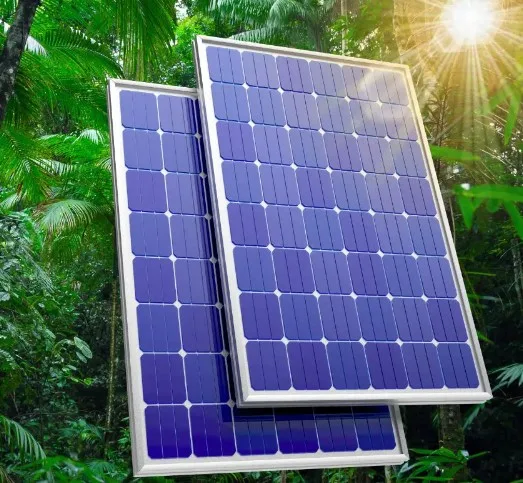Indigenous Amazon village breaks its dependence on gasoline, turns to solar energy
By Julie Campbell
The indigenous Achuar community in Ecuador’s Amazon region is undergoing a game-changing transition to solar energy to power its homes and the boats that navigate jungle waterways.

Solar panels installed near the Achuar village in the Ecuadorian Amazon.
The population of the village numbers about 100 people and is entirely surrounded by Ecuador’s largest oil reserves. For over four decades village residents have joined other local indigenous communities to advocate against the continuation of oil development that has profoundly changed the Amazon region, polluting water and soil. They have won several lawsuits but await implementation of the results.
Ironically, the Achuars had no other choice but to rely on the gasoline against which they were fighting, as they are well off the country’s electrical grid and have no other option for lighting homes and powering the boats – services critical to their survival. But then came the solar option.
The region of Ecuador in which the Achuar live has some of the lowest access to electricity in the country. That said, 12 villages in the deeply forested area have now installed solar energy generation panels that are making a dramatic difference.
The renewable power is changing their daily lives in a number of ways. This includes charging their “peque peques”, boats that had previously been gasoline-powered but that now move more slowly but do not require gasoline, keeping water clean and noise low. This is critical to communities that rely on that water for drinking, food preparation and bathing.
The boats have panels installed on their roofs and were provided through a nonprofit organization called Kara Solar.
Kara Solar has been promoting the use of this renewable power throughout the area, providing boats to local residents, which the new owners must then build, maintain, and repair. The group’s funding comes from outside donations and intends to provide residents with an additional 10 boats during the next couple of years.
With their own boats that don’t need expensive fuel, villagers save money when they have to travel to the nearest town and school attendance has skyrocketed among children. In fact, it has more than doubled. The boat that runs on solar energy is essentially free for them to use and is much safer than walking.




















